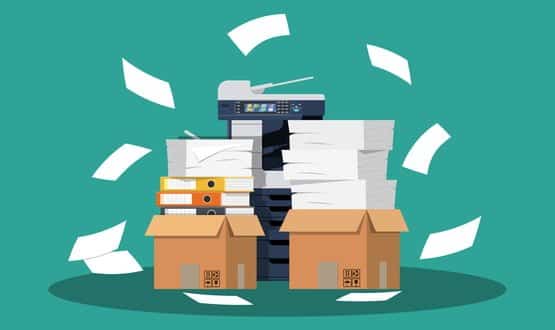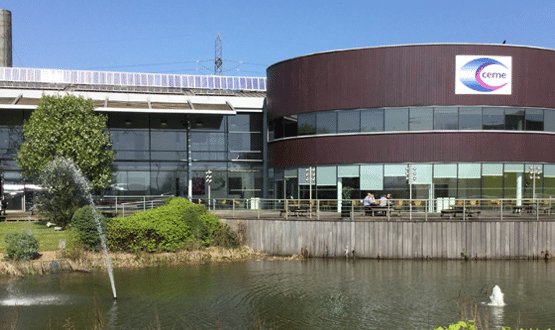Purging printers and swapping pens for PENS at Liverpool Women’s
- 13 August 2019

The continually shifting goalposts for the paperless NHS have made the subject something of a running joke since Jeremy Hunt first set the target six years ago, with latest estimations suggesting that the health service won’t be paper-free by 2023 – at the earliest.
There are manifold reasons why the NHS hasn’t been able to shake its unhealthy reliance on pen and paper. Funding will always be an issue; but has paperless also fallen down the list of trusts’ priorities?
Perhaps aversion to change plays a role. “A lot of trusts have not really bitten the bullet of paper-lite or paper-free, because they think it’s too much of a challenge,” Jaki Allen, digital transformation programme director at Liverpool Women’s NHS Foundation Trust, tells Digital Health News.
Allen can be considered somewhat of an expert when it comes to shaking up the modus operandi.
Having delivered the global digital exemplar (GDE) digitisation programme at Royal Liverpool and Broadgreen University Hospitals and navigating the implementation of the Cheshire and Merseyside sustainability and transformation plan (STP), Allen knows that bringing about cultural change is more than just plonking a new piece of kit in front of staff.
This is something she had to put into action at Liverpool Women’s, where Allen led a paper purge that led to a marked decrease in both the volume of printed pages and printers themselves.
This began with the implementation of a patient electronic note system (PENs), which stopped the generation of new paper anti-natal records.
“What I would say is, you just have to break it down into bite-sized chunks you can deliver in time,” she explains.
Working with Lexmark, Allen was able to cut the number of printers from 251 to 168 while decreasing the volume of printed pages by 30%, putting the trust on-target to save about £1.5m over the next five years.
Of course, reducing the number of physical printers is another important step for discouraging the production of paper. But you can’t rip out a piece of equipment unless there is something to replace it; preferably, something that’s just as easy to use.
The way Allen tells it, the hardest part is getting staff on board – “winning hearts and minds,” as she puts it.
“Trying to take a printer away is like trying to take a pen away,” she explains.
“There is a tendency to just write. Today, one of my challenges is that, because I’m taking away the paper, my clinicians will write on a napkin.
“I have to then take the napkin back to my health records team and say, ‘do you think this is acceptable?’ – because I can’t read it, and I can’t scan it.”
It won’t come as a surprise to learn that it’s convincing the older generation of NHS clinicians that proves most difficult.
“Your junior doctors are brilliant,” Allen says.
“They ‘re coming into the trust with multiple devices – their iPhone and smartwatches – and they’re coming in already wired up to social media, apps, wearables and so on.”
“But if you sit on a medical board with someone who’s been in the NHS for years and tell them you’re taking away their piece of paper and pen – they’re horrified, because they’re so used to scribbling.”
Take away, give something back
Making sure staff have the right tools in place from the get-go is fundamental to any digital change programme. After all, hospital staff can’t carry out their usual duties if they can’t use the fancy new tech that’s been placed in front of them, no matter what it promises.
This seems painfully obvious, but in reality, it’s an all-too-common occurrence.
From working at Royal Broadgreen, Allen says she could anticipate these challenges ahead of time, ensuring Liverpool Women’s had all the necessary infrastructure in place before “flooding the trust with devices”.
Then and only then did Liverpool Women’s start talking about going paper-free, she says.
“We spent a lot of time looking at devices that throw out paper, or didn’t connect to the network.
“If you can digitise all of that and network them, you’re going to be able to go paper-free with each bit.”
Liverpool Women’s has benefitted from NHS England’s flagship GDE programme, owing from its status a fast follower of Royal Liverpool and Broadgreen.
While there has been some debate over whether the GDE system provides an effective means of advancing NHS digitisation, Allen, at least, says the programme has served its purpose.
“Liverpool Women’s is richer for having had the opportunity to partake in the GDE programme. It focuses the mind, it gives you a pot of money to give it a go and it gives you a really good ambition, and it put digital on the map for the trust.”
Allen does concede, however, that the fruits of the GDE programmes are limited in scope.
“I would like to see more GDEs giving back,” she says.
“Why am I not going to Yorkshire, or Kent, and working with one of those trusts?
“Why do I hold onto a business case for my paper-free programme when we could share it? There’s nothing in there about IPs, so why am I not giving that kind of information to somebody less fortunate and less digital-savvy?”





2 Comments
so if you haven’t shared anything how have you fulfilled the GDE programme requirements? this is exactly why it isn’t the right approach. giving the money to trusts that already have higher levels of digital maturity at the expense of those that need investment is illogical particularly if the proposed blueprinting isn’t happening.
In regards to the last paragraphs about sharing Knowledge, that’s a key element of the GDE programmes, Is that trust’s create Blueprints that others can follow.
Comments are closed.